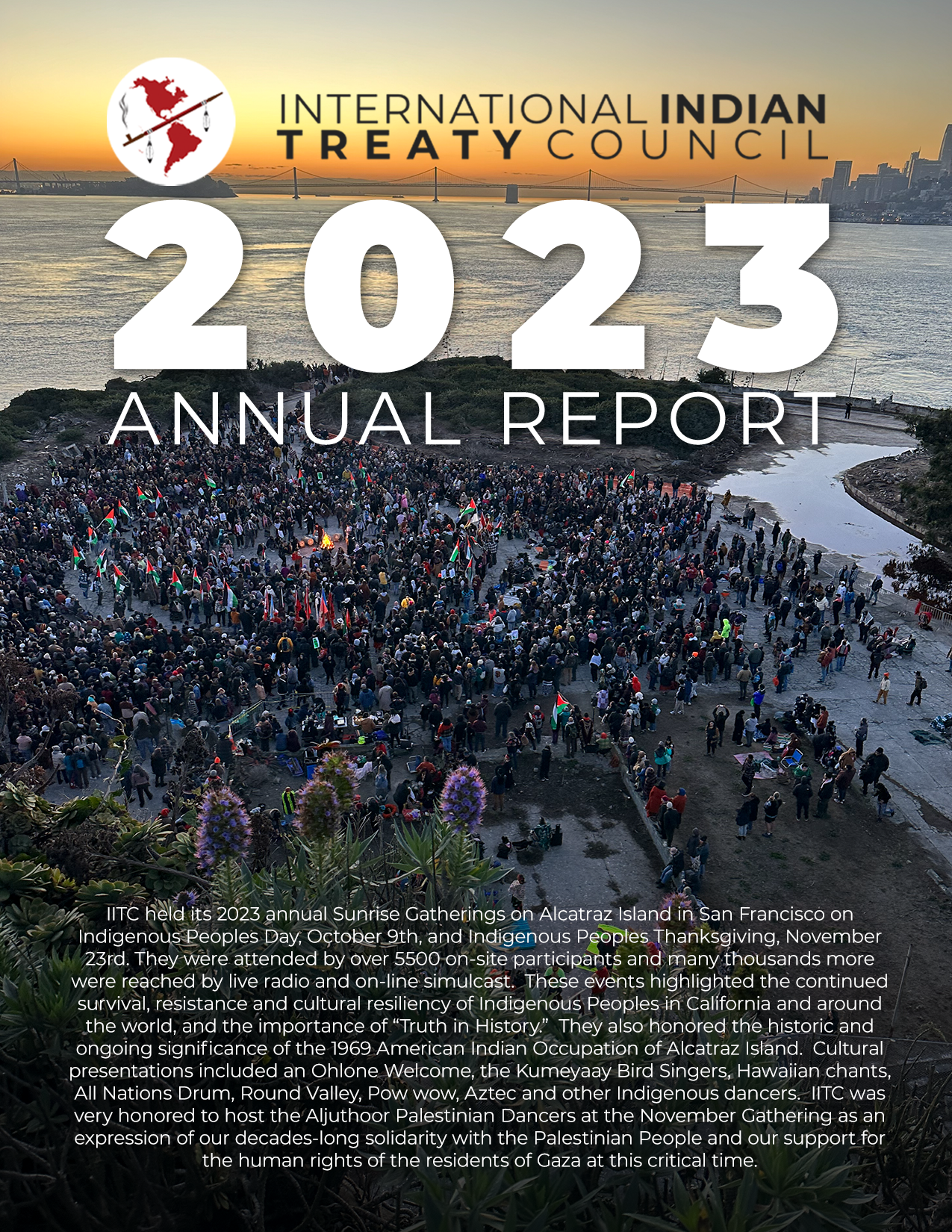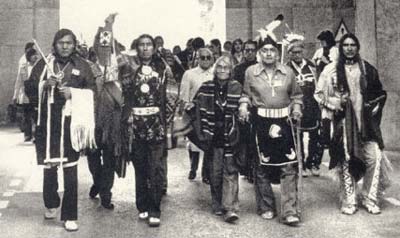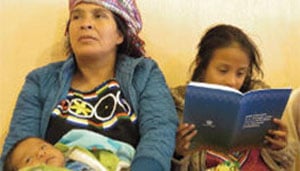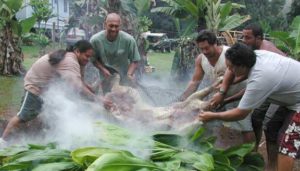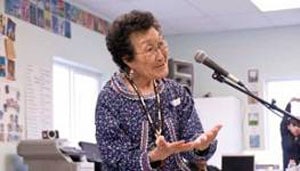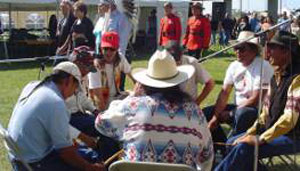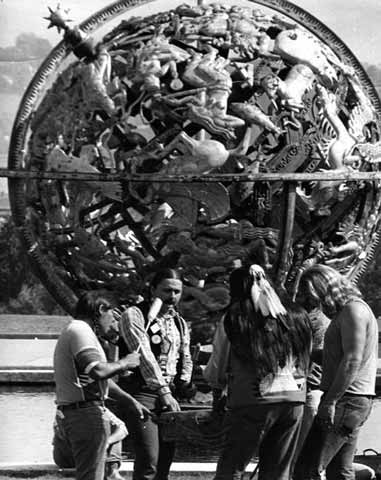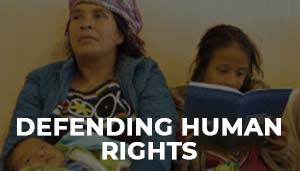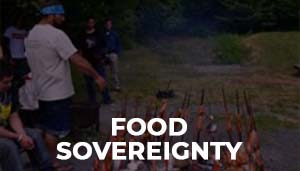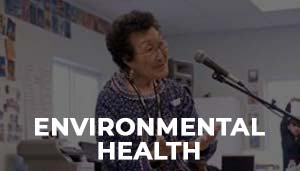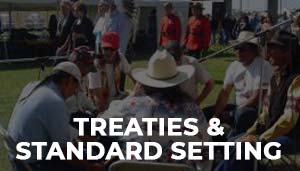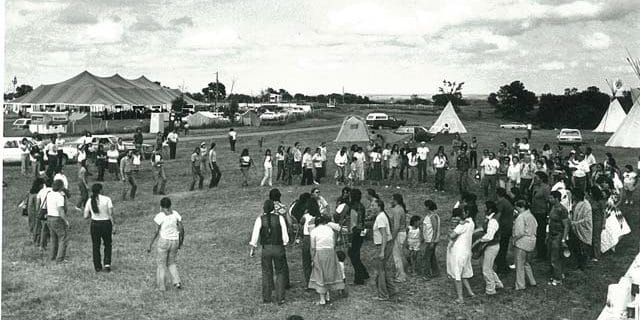
Ambassador Yevheniia Filipenko
Rue de l’Orangerie 14
1202 Geneva
Switzerland
[email protected]
Ambassador Gennady Gatilov
Avenue de la Paix 15
1211 Geneva
Switzerland
[email protected]
cc: Vladimir Putin
cc: President Volodymyr Zelenskyy
cc: U.N. Special Rapporteur on the Rights of Indigenous Peoples, Mr. Francisco Cali Tzay, via email, [email protected]
cc: Expert Mechanism on the Rights of Indigenous Peoples, via email, [email protected], Ms. Sheryl Lightfoot, via email, [email protected]
cc: Permanent Forum on Indigenous Issues, Ms. Hannah McGlade, via email, [email protected]; Mr. Aleksei Tsykarev, via email, [email protected]
cc: World Public Opinion
cc: Indigenous Organizations
Re: Urgent Call to Safeguard Indigenous Peoples Residing in Ukraine from Russia War
The International Indian Treaty Council (IITC) and the Arctic Athabaskan Council (AAC) are gravely concerned regarding the treatment of Crimean Tatars and other Indigenous Peoples in Ukraine due to the invasion and war Russia has brought to the region. The AAC and IITC also want to address the contributions to the current situation of The Crimean Tatars by other countries and international organizations such as the North Atlantic Treaty Organization (NATO).
The Arctic Athabaskan Council was established to defend the rights and further the interests internationally of its members, who represent their linguistic Athabaskan Peoples of Alaska, Yukon Territory, the Northwest Territories and northern regions of Canada. The Athabaskan peoples have traditionally occupied a vast geographic area of approximately 3 million square kilometers. This region has been continuously occupied by Athabaskan Peoples for at least 10,000 years.
The Arctic Athabaskan Council is a member of the Arctic Council along with 6 other permanent participants. The Arctic Council is also comprised of the Senior Arctic Officials and its Working Groups include Arctic Monitoring and Assessment Program (AMAP); Emergency Prevention, Preparedness and Response (EPPR); Conservation of Arctic Flora and Fauna (CAFF); Protection of the Arctic Marine Environment (PAME); Sustainable Development Working Group (SDWG) and Arctic Contaminants Action Program (ACAP). The Arctic Council is currently chaired by the Russian Federation.
The International Indian Treaty Council is an organization of Indigenous Peoples from North, Central, South America, the Caribbean and the Pacific working for the Sovereignty and Self Determination of Indigenous Peoples and the recognition and protection of Indigenous Rights, Treaties, Traditional Cultures and Sacred Lands. In 1977 IITC became the first Indigenous Peoples’ organization to be recognized as a Non-Governmental Organization (NGO) with Consultative Status to the United Nations Economic and Social Council. In 2011, IITC was the first Indigenous organization to be upgraded to General Consultation Status in recognition of its active role in a wide range of international bodies and processes to ensure that the rights of Indigenous Peoples are recognized, respected and upheld.
Crimean Tatar People were recognized by the Government of Ukraine and the European Parliament as Indigenous Peoples in February 2016. As such, the AAC and IITC point to the U.N. Declaration on the Rights of Indigenous Peoples (U.N. Declaration), with focus on Article 30:
- Military activities shall not take place in the lands or territories of Indigenous Peoples, unless justified by a relevant public interest or otherwise freely agreed with or requested by the indigenous peoples concerned. States shall undertake effective consultations with the Indigenous Peoples concerned, through appropriate procedures and in particular through their representative institutions, prior to using their lands or territories for military activities.
Further, Article 7 states:
- Indigenous individuals have the rights to life, physical and mental integrity, liberty and security of person. Indigenous Peoples have the collective right to live in freedom, peace and security as distinct peoples and shall not be subjected to any act of genocide or any other act of violence, including forcibly removing children of the group to another group.
Additionally, Article 8 states:
- Indigenous Peoples and individuals have the right not to be subjected to forced assimilation or destruction of their culture. States shall provide effective mechanisms for prevention of, and redress for: any action which has the aim or effect of depriving them of their integrity as distinct peoples, or of their cultural values or ethnic identities; any action which has the aim or effect of dispossessing them of their lands, territories or resources; any form of forced population transfer which has the aim or effect of violating or undermining any of their rights; any form of forced assimilation or integration; any form of propaganda designed to promote or incite racial ethnic discrimination directed against them.
Similarly, Article 10 states:
- Indigenous Peoples shall not be forcibly removed from their lands or territories. No relocation shall take place without the free, prior and informed consent of the Indigenous Peoples concerned and after agreement on just and fair compensation and, where possible, with the option of return.
Ukraine has failed to uphold and respect the rights of the Crimean Tatar People. A report by the Unrepresented Nations and Peoples Organization (UNPO) submitted to the Human Rights Committee show the centuries of genocide and discrimination the Crimean Tatar People have faced. Although, the Crimean Tatar People’s right to return to their homeland was recognized in 1989, Ukraine continues to ignore their human rights and ability to remain on their homelands.[1]
Moreover, the Ukrainian Government fails to effectively communicate with Crimean Tatar People and declines to acknowledge their concerns. For example, the Ukrainian Government appointed a chairman to the Crimean Presidential Council of the Crimean Tatar People, a body that is supposed to represent the Crimean Tatar People within the Ukrainian Government, despite the Crimean Tatar People’s calls for an election.[2] The chairman that the Ukrainian Government appointed notoriously has poor relations with Crimean Tatar People.[3] Further, official election materials are only available in the Ukrainian language ensuring that minorities like the Crimean Tatar People are at a distinct disadvantage in effective participation in government.[4]
Ukraine also declines to intervene in hate crimes against the Crimean Tatar People.[5] UNPO believes that hate crimes against Crimean Tatars are due to harmful stereotypes and inaccurate information in Ukrainian textbooks.[6]
Currently, Russia’s continued aggression and current invasion against Ukraine wantonly endangers innocent lives, violates international laws, norms, and precedent – including the U.N. Declaration, and violates the human rights of the Crimean Tatar People and other Indigenous Peoples in the area.
Crimean Tatar People have been historically persecuted and their lands threatened, by both Russia and Ukraine. In 2016, “Crimean Tatar extremism” was sought after and persecuted by “Russian de-facto authorities.”[7] Human Rights Watch reported that after the Russian occupation in 2014:
- Russian authorities and their proxies have subjected members of Crimean Tatar community and their supporters, including journalists, bloggers, activists, and others to harassment, intimidation, threats, intrusive and unlawful searches of their homes, physical attacks, and enforced disappearances. Complaints lodged with authorities are not investigated effectively. Russia has banned Crimean Tatar media and organizations that criticized Russia’s actions in Crimea, including disbanding and proscribing the Mejlis, the Crimean Tatar self-governing highest executive body.[8]
In 2017, Human Rights Watch reported that:
- Russian authorities brought separatism charges against Suleiman Kadyrov, a Crimean Tatar activist, for posting a comment on social media criticizing the occupation of Crimea. The charges came several weeks after a Russian court convicted a Crimean Tatar leader, Ilmi Umerov, on separatism charges stemming from a media interview in which he criticized Russian actions in Crimea, and sentenced him to two years in prison… a Russian court in Crimea sentenced another prominent Crimean Tatar leader, Akhtem Chiygoz, to eight years in prison on bogus charges of organizing “mass riots.”[9]
Russia’s current invasion has resulted in the detainment of more than 50 Crimean Tatars as the result of a protest due to 5 Crimean Tatar activists being arrested and their homes raided.[10]
The Russian invasion of Ukraine violates the U.N. Charter, Article 2(4) that states U.N. member States must refrain from “use of force against the territorial integrity or political independence of any state.”[11] Russia has stated that it is justified according to Article 51; however, those claims of self-defense are unfounded.[12]
The silence of international organizations and member States regarding Indigenous rights and specifically the Crimean Tatar People during the Russian-Ukraine war furthers and exacerbates the violence and discrimination the Crimean Tatar People face.
NATO has expressed interest in recognizing Ukraine as an alliance member since 2008.[13] However, NATO has failed to outline specific deadlines and requirements to Ukraine to become an ally member, leaving it vulnerable, and as a result, leaving Crimean Tatar People vulnerable.
The situation for Crimean Tatar People will only grow more dire with Russia’s increased aggression and war. The AAC and IITC call on all State and international actors to protect the Crimean Tatar People and uphold Indigenous rights, and any and all negotiations or meetings regarding the Russian-Ukraine war must meaningfully and effectively include the Crimean Tatar People.

![]()
Ron Lameman Chief Gary Harrison
Board President International Chair
International Indian Treaty Council Arctic Athabaskan Council

![]()
Andrea Carmen Chief Bill Erasmus
Executive Director Canadian Chair
International Indian Treaty Council Arctic Athabaskan Council
[1] https://unpo.org/downloads/663.pdf; See also https://unpo.org/article/16142
[2] https://unpo.org/downloads/663.pdf
[3] https://unpo.org/downloads/663.pdf
[4] https://unpo.org/downloads/663.pdf
[5] https://unpo.org/downloads/663.pdf
[6] https://unpo.org/downloads/663.pdf
[7] Eskender Bariiev, Crimean Tatar Resource Center. Statement for side-event “Threats for Human Dimension Issues in Maritime Sector: Ukrainian Examples” Human Dimension Implementation Meeting 2019 20 September 2019 13.15-14.45 Meeting Room 3, Ongoing Violation the Indigenous Peoples` Rights on Mineral and Biologic Sources in Waters around Crimea.
[8] https://www.hrw.org/news/2017/11/14/crimea-persecution-crimean-tatars-intensifies#
[9] https://www.hrw.org/news/2017/11/14/crimea-persecution-crimean-tatars-intensifies#
[10] https://abcnews.go.com/International/wireStory/ukraine-russia-detained-crimean-tatar-activists-79833695
[11] https://www.cfr.org/article/how-russias-invasion-ukraine-violates-international-law
[12] https://www.cfr.org/article/how-russias-invasion-ukraine-violates-international-law
Share this post
Letter of Support – AAC IITC The Crimean Tatars

Ambassador Yevheniia Filipenko
Rue de l’Orangerie 14
1202 Geneva
Switzerland
[email protected]
Ambassador Gennady Gatilov
Avenue de la Paix 15
1211 Geneva
Switzerland
[email protected]
cc: Vladimir Putin
cc: President Volodymyr Zelenskyy
cc: U.N. Special Rapporteur on the Rights of Indigenous Peoples, Mr. Francisco Cali Tzay, via email, [email protected]
cc: Expert Mechanism on the Rights of Indigenous Peoples, via email, [email protected], Ms. Sheryl Lightfoot, via email, [email protected]
cc: Permanent Forum on Indigenous Issues, Ms. Hannah McGlade, via email, [email protected]; Mr. Aleksei Tsykarev, via email, [email protected]
cc: World Public Opinion
cc: Indigenous Organizations
Re: Urgent Call to Safeguard Indigenous Peoples Residing in Ukraine from Russia War
The International Indian Treaty Council (IITC) and the Arctic Athabaskan Council (AAC) are gravely concerned regarding the treatment of Crimean Tatars and other Indigenous Peoples in Ukraine due to the invasion and war Russia has brought to the region. The AAC and IITC also want to address the contributions to the current situation of The Crimean Tatars by other countries and international organizations such as the North Atlantic Treaty Organization (NATO).
The Arctic Athabaskan Council was established to defend the rights and further the interests internationally of its members, who represent their linguistic Athabaskan Peoples of Alaska, Yukon Territory, the Northwest Territories and northern regions of Canada. The Athabaskan peoples have traditionally occupied a vast geographic area of approximately 3 million square kilometers. This region has been continuously occupied by Athabaskan Peoples for at least 10,000 years.
The Arctic Athabaskan Council is a member of the Arctic Council along with 6 other permanent participants. The Arctic Council is also comprised of the Senior Arctic Officials and its Working Groups include Arctic Monitoring and Assessment Program (AMAP); Emergency Prevention, Preparedness and Response (EPPR); Conservation of Arctic Flora and Fauna (CAFF); Protection of the Arctic Marine Environment (PAME); Sustainable Development Working Group (SDWG) and Arctic Contaminants Action Program (ACAP). The Arctic Council is currently chaired by the Russian Federation.
The International Indian Treaty Council is an organization of Indigenous Peoples from North, Central, South America, the Caribbean and the Pacific working for the Sovereignty and Self Determination of Indigenous Peoples and the recognition and protection of Indigenous Rights, Treaties, Traditional Cultures and Sacred Lands. In 1977 IITC became the first Indigenous Peoples’ organization to be recognized as a Non-Governmental Organization (NGO) with Consultative Status to the United Nations Economic and Social Council. In 2011, IITC was the first Indigenous organization to be upgraded to General Consultation Status in recognition of its active role in a wide range of international bodies and processes to ensure that the rights of Indigenous Peoples are recognized, respected and upheld.
Crimean Tatar People were recognized by the Government of Ukraine and the European Parliament as Indigenous Peoples in February 2016. As such, the AAC and IITC point to the U.N. Declaration on the Rights of Indigenous Peoples (U.N. Declaration), with focus on Article 30:
- Military activities shall not take place in the lands or territories of Indigenous Peoples, unless justified by a relevant public interest or otherwise freely agreed with or requested by the indigenous peoples concerned. States shall undertake effective consultations with the Indigenous Peoples concerned, through appropriate procedures and in particular through their representative institutions, prior to using their lands or territories for military activities.
Further, Article 7 states:
- Indigenous individuals have the rights to life, physical and mental integrity, liberty and security of person. Indigenous Peoples have the collective right to live in freedom, peace and security as distinct peoples and shall not be subjected to any act of genocide or any other act of violence, including forcibly removing children of the group to another group.
Additionally, Article 8 states:
- Indigenous Peoples and individuals have the right not to be subjected to forced assimilation or destruction of their culture. States shall provide effective mechanisms for prevention of, and redress for: any action which has the aim or effect of depriving them of their integrity as distinct peoples, or of their cultural values or ethnic identities; any action which has the aim or effect of dispossessing them of their lands, territories or resources; any form of forced population transfer which has the aim or effect of violating or undermining any of their rights; any form of forced assimilation or integration; any form of propaganda designed to promote or incite racial ethnic discrimination directed against them.
Similarly, Article 10 states:
- Indigenous Peoples shall not be forcibly removed from their lands or territories. No relocation shall take place without the free, prior and informed consent of the Indigenous Peoples concerned and after agreement on just and fair compensation and, where possible, with the option of return.
Ukraine has failed to uphold and respect the rights of the Crimean Tatar People. A report by the Unrepresented Nations and Peoples Organization (UNPO) submitted to the Human Rights Committee show the centuries of genocide and discrimination the Crimean Tatar People have faced. Although, the Crimean Tatar People’s right to return to their homeland was recognized in 1989, Ukraine continues to ignore their human rights and ability to remain on their homelands.[1]
Moreover, the Ukrainian Government fails to effectively communicate with Crimean Tatar People and declines to acknowledge their concerns. For example, the Ukrainian Government appointed a chairman to the Crimean Presidential Council of the Crimean Tatar People, a body that is supposed to represent the Crimean Tatar People within the Ukrainian Government, despite the Crimean Tatar People’s calls for an election.[2] The chairman that the Ukrainian Government appointed notoriously has poor relations with Crimean Tatar People.[3] Further, official election materials are only available in the Ukrainian language ensuring that minorities like the Crimean Tatar People are at a distinct disadvantage in effective participation in government.[4]
Ukraine also declines to intervene in hate crimes against the Crimean Tatar People.[5] UNPO believes that hate crimes against Crimean Tatars are due to harmful stereotypes and inaccurate information in Ukrainian textbooks.[6]
Currently, Russia’s continued aggression and current invasion against Ukraine wantonly endangers innocent lives, violates international laws, norms, and precedent – including the U.N. Declaration, and violates the human rights of the Crimean Tatar People and other Indigenous Peoples in the area.
Crimean Tatar People have been historically persecuted and their lands threatened, by both Russia and Ukraine. In 2016, “Crimean Tatar extremism” was sought after and persecuted by “Russian de-facto authorities.”[7] Human Rights Watch reported that after the Russian occupation in 2014:
- Russian authorities and their proxies have subjected members of Crimean Tatar community and their supporters, including journalists, bloggers, activists, and others to harassment, intimidation, threats, intrusive and unlawful searches of their homes, physical attacks, and enforced disappearances. Complaints lodged with authorities are not investigated effectively. Russia has banned Crimean Tatar media and organizations that criticized Russia’s actions in Crimea, including disbanding and proscribing the Mejlis, the Crimean Tatar self-governing highest executive body.[8]
In 2017, Human Rights Watch reported that:
- Russian authorities brought separatism charges against Suleiman Kadyrov, a Crimean Tatar activist, for posting a comment on social media criticizing the occupation of Crimea. The charges came several weeks after a Russian court convicted a Crimean Tatar leader, Ilmi Umerov, on separatism charges stemming from a media interview in which he criticized Russian actions in Crimea, and sentenced him to two years in prison… a Russian court in Crimea sentenced another prominent Crimean Tatar leader, Akhtem Chiygoz, to eight years in prison on bogus charges of organizing “mass riots.”[9]
Russia’s current invasion has resulted in the detainment of more than 50 Crimean Tatars as the result of a protest due to 5 Crimean Tatar activists being arrested and their homes raided.[10]
The Russian invasion of Ukraine violates the U.N. Charter, Article 2(4) that states U.N. member States must refrain from “use of force against the territorial integrity or political independence of any state.”[11] Russia has stated that it is justified according to Article 51; however, those claims of self-defense are unfounded.[12]
The silence of international organizations and member States regarding Indigenous rights and specifically the Crimean Tatar People during the Russian-Ukraine war furthers and exacerbates the violence and discrimination the Crimean Tatar People face.
NATO has expressed interest in recognizing Ukraine as an alliance member since 2008.[13] However, NATO has failed to outline specific deadlines and requirements to Ukraine to become an ally member, leaving it vulnerable, and as a result, leaving Crimean Tatar People vulnerable.
The situation for Crimean Tatar People will only grow more dire with Russia’s increased aggression and war. The AAC and IITC call on all State and international actors to protect the Crimean Tatar People and uphold Indigenous rights, and any and all negotiations or meetings regarding the Russian-Ukraine war must meaningfully and effectively include the Crimean Tatar People.

![]()
Ron Lameman Chief Gary Harrison
Board President International Chair
International Indian Treaty Council Arctic Athabaskan Council

![]()
Andrea Carmen Chief Bill Erasmus
Executive Director Canadian Chair
International Indian Treaty Council Arctic Athabaskan Council
[1] https://unpo.org/downloads/663.pdf; See also https://unpo.org/article/16142
[2] https://unpo.org/downloads/663.pdf
[3] https://unpo.org/downloads/663.pdf
[4] https://unpo.org/downloads/663.pdf
[5] https://unpo.org/downloads/663.pdf
[6] https://unpo.org/downloads/663.pdf
[7] Eskender Bariiev, Crimean Tatar Resource Center. Statement for side-event “Threats for Human Dimension Issues in Maritime Sector: Ukrainian Examples” Human Dimension Implementation Meeting 2019 20 September 2019 13.15-14.45 Meeting Room 3, Ongoing Violation the Indigenous Peoples` Rights on Mineral and Biologic Sources in Waters around Crimea.
[8] https://www.hrw.org/news/2017/11/14/crimea-persecution-crimean-tatars-intensifies#
[9] https://www.hrw.org/news/2017/11/14/crimea-persecution-crimean-tatars-intensifies#
[10] https://abcnews.go.com/International/wireStory/ukraine-russia-detained-crimean-tatar-activists-79833695
[11] https://www.cfr.org/article/how-russias-invasion-ukraine-violates-international-law
[12] https://www.cfr.org/article/how-russias-invasion-ukraine-violates-international-law
